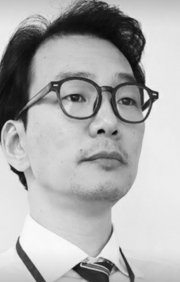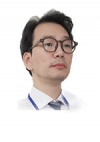
A drug having been developed as a new drug but now produced by another company with the same ingredients due to the patent expiry. This is the dictionary meaning of 'generic'. Although dosage forms may vary, it is produced through pharmaceutical equivalence or bioequivalence tests, thus the efficacy is the same as that of the existing new drug. The government is pushing forward to change the name of generic drugs to “copy drugs.” In order to allow easy and convenient use of technical terminology, the ‘Provision for Standardization of Technical Terminology in the Field of Health and Welfare’ was drafted and announced. The general public would be more familiar with copy drugs. In the pharmaceutical industry, it is called a generic drug (or simply, generic) in technical terminology. It is known that the government also considers adjusting the relatively high price of generic drugs along with the name change. It is intended to expand health insurance financing by reducing the price of generic drugs. The pharmaceutical industry is voicing its concerns. The pharmaceutical industry argues that “the government is devaluing generics”, and is demanding a proper valuation. We listened to the opinions of the government and the pharmaceutical industry regarding the valuation of generics. First, the government argues that the prices of domestic generic drugs are higher than those in developed countries. Although prices are different from country to country, the prices of generic drugs are known to be 30% of that of the originals in Sweden and 25% in Canada. In the United States and the United Kingdom where autonomous pricing systems have been implemented, the prices are at the 10% level. The prices of domestic generic drugs are maintained at 53.55% of those of the original drugs.
The government explains that the reduction of the prices of generics will have a good effect on the health insurance financing. According to the Ministry of Health and Welfare, the total amount of insurance pay-out for generics in 2021 was estimated to be 8.67 trillion won. The Ministry estimated that up to 3.2 trillion won will be saved if the prices of generic drugs (53.55%) are reduced to 30%. Of course, it would be difficult to estimate it accurately due to the subdivision of the upper limit and other conditions, but the government's logic is that such a saving effect is predicted if it is calculated after simplifying the conditions. The pharmaceutical industry also talks about the effect of saving health insurance financing with generic drugs. In the pharmaceutical industry, generics account for a significant proportion of the revenue model. The Korea’s pharmaceutical industry has a structure where the proceeds from generics are reinvested in R&D of new drugs. According to the industry, when a generic drug is launched on the market, the price of the original drug is usually adjusted to 70% of the original price in one year immediately after the release date of the generic, and the price of the generic drug is adjusted to 59.55% of that of the existing original drug. Then after a year, both will be reduced to 53.55% of the original drug price. This means that the release of generic drugs alone will make the price of drugs cheaper and bring about 30% or more savings in health insurance financing.
Another advantage of generic drugs is that they serve as cash cows for the pharmaceutical and bio industries. An R&D executive from the industry said, "If we succeed in developing a global blockbuster new drug, we can create a huge amount of high added value worth as much as tens of trillion won a year. New drug development requires a trillion-won investment for over 10 years. Even then, this does not have a high success rate, and according to the US Biotechnology Innovation Organisation, the success rate from phase 1 clinical trial to new drug approval between 2012 and 2020 was only 7.9%.” In such a condition of high barriers to new drug development, domestic pharmaceutical and biotech companies have established an ecosystem of a virtuous cycle where profits from sales of generic drugs are invested in R&D. They are taking on the challenge of developing new drugs for global blockbusters. Israel's Teva Pharmaceuticals, considered the world's No. 1 generic drug company, has also leaped to a new drug developer by selling generic drugs as cash cows. This is the result of aggressive M&As, and R&D using money earned from generic drugs. The US and Japan are pushing to expand the introduction of generic drugs to curb medical expenses. The Japanese government plans to increase the proportion of prescriptions for generic drugs to more than 80% by 2023. It is pointed out that the Korean government also needs to look at the cases of developed countries that are increasing the proportion of generic drugs. This means that we should ‘evaluate generic drugs’ properly.
[WIKI KOREA=Cho Pil Hyun, Staff Reporter]
chop23@wikileaks-kr.org


